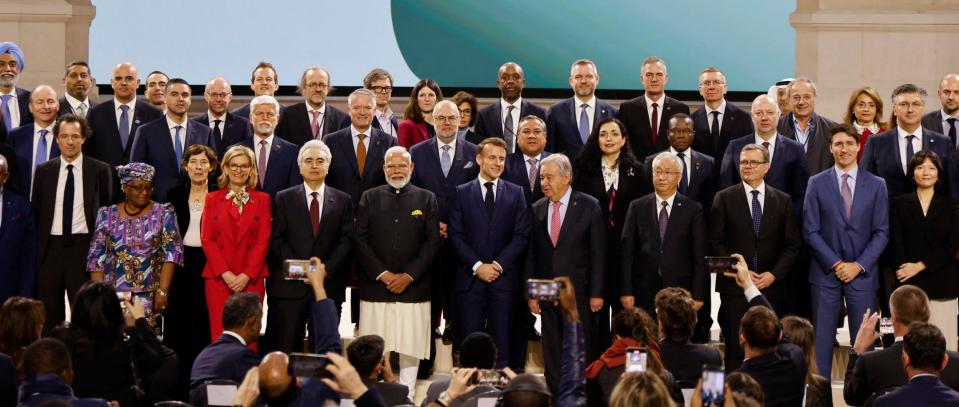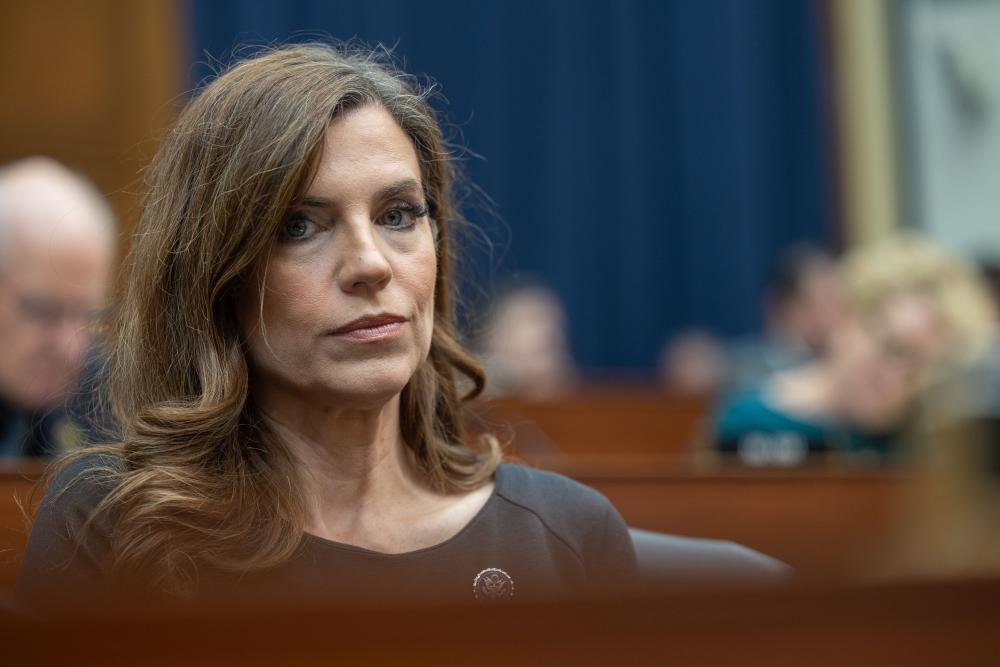The UK has sided with the US in refusing to sign a leaders’ declaration at the climax of the AI action summit in Paris.
There had been reports that the UK would not sign the declaration after the US reportedly raised concerns about the wording, which is said to include references to “sustainable and inclusive AI”.
Downing Street would not comment on “live” discussions, but Sir Keir Starmer’s official spokesman told reporters: “We’ll only ever sign up to initiatives that are in the UK’s national interests.”
The spokesman said the Government had “worked with the French throughout this process” and “they remain one of our closest partners in all areas of AI”.
ADVERTISEMENT
World leaders, tech executives, civil society representatives and academics have been in talks for two days in the French capital over the current progress in and future direction of the technology.
Sir Keir chose not to attend the summit, although Peter Kyle, the Science Secretary, has been in Paris, where he said he would speak to international partners about cementing the UK’s position as an “AI pioneer”.

Earlier on Monday, JD Vance, the US vice president, urged Europe to have a light-touch approach to the regulation of AI in order to foster innovation, but also warned international partners against doing deals with “authoritarian regimes” around the technology.
He made the remarks shortly before dozens of nations signed a statement calling for efforts to flank the technology with regulation to make it “open” and “ethical”.
ADVERTISEMENT
In his first foreign speech since taking up his role, Mr Vance said: “AI must remain free from ideological bias, and American AI will not be co-opted into a tool for authoritarian censorship.”
His comments came weeks after China’s DeepSeek blindsided US giants such as Open AI with an app that offered similar results at a fraction of the cost after Mr Trump had announced a $500 billion (£404 billion) “Stargate” plan to supercharge AI in the US.
Addressing a room full of fellow senior politicians including Emmanuel Macron, France’s president, Mr Vance signalled America’s intention to remain the “gold standard” in AI worldwide.
In an apparent dig at China, he said America would “safeguard American AI and chip technologies from theft and misuse, work with our allies and partners to strengthen and extend these protections, and close pathways to adversaries attaining AI capabilities that threaten all of our people”.
And in a jibe at the European Union, which has been accused of slowing home-grown AI through red tape, he said: “We believe that excessive regulation of the AI sector could kill a transformative industry just as it’s taking off.
ADVERTISEMENT
“America wants to partner with all of you. We want to embark on the AI revolution before us with the spirit of openness and collaboration. But to create that kind of trust, we need international regulatory regimes that foster the creation of AI technology rather than strangle it, and we need our European friends in particular to look to this new frontier with optimism.”
Mr Vance said the Trump administration “was troubled by reports that some foreign governments are considering tightening screws on US tech companies with international footprints”.
Taking aim at the EU’s Digital Service Act, he said: “The massive regulations it created about taking down content and policing so-called misinformation. It is one thing to prevent a predator from preying on a child on the internet, and it is something quite different to prevent a grown man or woman from accessing an opinion that the government thinks is misinformation.”
Narendra Modi, India’s prime minister, had earlier called for “collective, global efforts to establish governance and standards that uphold our shared values, address risks and build trust”. Future AI would need to be “free from biases” and “address concerns related to cyber security, disinformation and deepfakes” to benefit all, he said.
Mr Modi co-hosted the summit with Mr Macron, and his country will host the next meeting on advancing global rules.

Ursula von der Leyen, the European Commission president, said Brussels would push to mobilise €200 billion for AI investments in Europe, with €50 billion to come from the EU’s budget and the rest from “providers, investors and industry”. She conceded that the bloc had to do more to cut “red tape”.
ADVERTISEMENT
Mr Vance was among dozens of political and tech leaders who attended a dinner at the Elysee Palace on Monday night. He left the meal before Zhang Guoqing, the Chinese vice premier, delivered his speech.
Dominique Seux, the only French journalist present at the dinner, said the US vice president missed a speech that “sung the praises of trade and the UN” and was “purely anti-Trumpist”.
The Elysee said Mr Vance had warned the presidency that he had to leave early and that they had changed the order of the speeches, with Mr Zhang having been due to speak earlier.
The summit comes as the mood on AI continues to shift from concerns around safety to geopolitical competition, with countries jockeying to nurture the next AI giant.
On the summit’s first day, Mr Macron had urged Europe to cut red tape to make it easier for AI to flourish in the bloc, after the Trump administration’s unwinding of AI guardrails laid bare how far strategies towards AI in the US, China and Europe have diverged.
Justin Trudeau, the Canadian prime minister, warned: “If AI doesn’t benefit all citizens, then trust in science will fall dramatically.”
EMEA Tribune is not involved in this news article, it is taken from our partners and or from the News Agencies. Copyright and Credit go to the News Agencies, email news@emeatribune.com Follow our WhatsApp verified Channel




